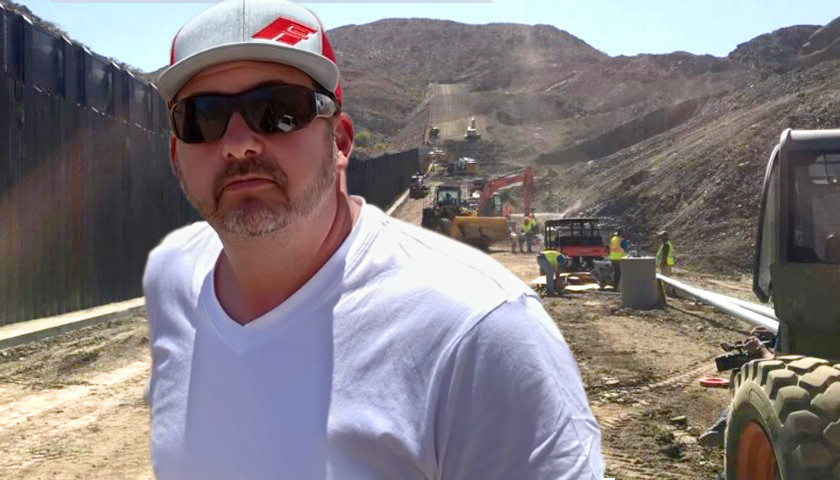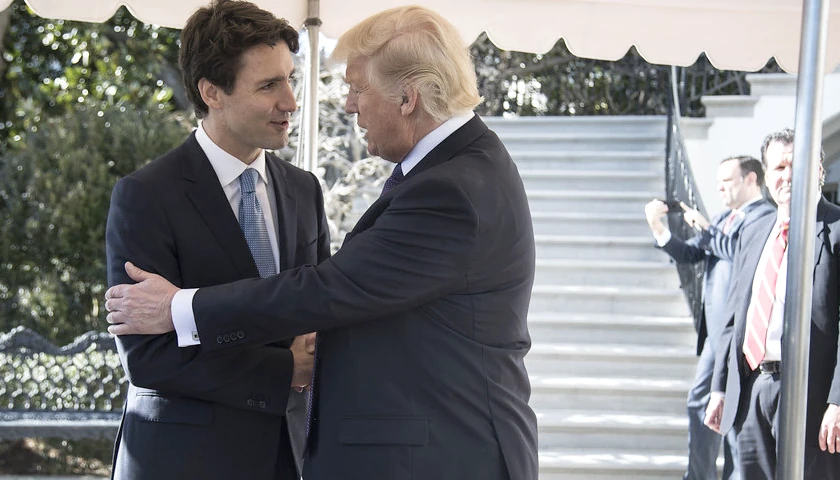by Rob Port
There has been a lot of political furor, of late, over North Dakota-based Fisher Industries receiving a very large federal contract to build a portion of the controversial border wall between the United States and Mexico.
The company is set to be paid $268 million to build 31 miles of border wall in the Cabeza Prieta National Wildlife Refuge. The contract has another $132 million in options that could be exercised.

The aforementioned political furor seems born of the fact that the head of this company, Mr. Tommy Fisher, is an unabashed supporter of President Donald Trump, who has appeared on Fox News. Fisher also has close ties with U.S. Senator Kevin Cramer, who, for his part, invited Fisher to the State of the Union address in 2018 and has been an advocate of Fisher receiving the contract.
At first blush, that all might seem a bit, well, unseemly. Typically government contractors try to fly under the media radar, and they don’t wear their political allegiances on their sleeves. Fisher has done neither, and while I suppose you could argue that Fisher’s political loyalties earned him the contract, you can also say he’s been a bit more transparent than the usual executive whose company is soliciting a significant contract.
Just to illustrate this point, another company awarded border wall contracts is an entity called Southwest Valley Constructors. But that entity was only formed in 2017. Their website is barebones to the point of being almost non-existent. That’s because, as it turns out, SWVC is a subsidiary of Kiewit, a Nebraska-based firm that has existed since the 19th century and reports billions of dollars in revenue every year.
It sure seems like the SWVC subsidiary was established as a way to create distance between Kiewit and a politically-charged project.
Fisher has done the opposite, and it has put both him and his company in the crosshairs somewhat.
But how about the contract itself? Is it out of line?
Based on the math, it sure doesn’t seem that way.
The Arizona Daily Star has a report about Fisher and his company receiving this contract. While that report mostly focuses on the aforementioned political questions, toward the end, they have a summary of the border wall contracts which have been awarded so far.
SWVC has been awarded three contracts totaling nearly $1.3 billion to build 63 miles of wall. That averages out to almost $20.5 million per mile.
BFBC, a subsidiary of Montana-based Barnard Construction, has been awarded two contracts for 33 miles of the border wall worth $260 million. That works out to less than $8 million per mile. They also have a third contract worth $121 million for 5 miles of the wall. That’s about $24.2 million per mile.

Fisher’s contract is right in line with these other amounts. As I’ve mentioned, the agreement covers the construction of 31 miles of the wall for $268 million. That works out to over $8.6 million per mile, or about $13 million per mile if all the contract’s options are exercised.
There is a lot of variance in these contracts. I’m assuming that’s justified by the differences in terrain and logistical challenges along the border. Some areas are probably quite accessible and easy to build in. Others are likely inaccessible and extremely remote.
Obviously building in one area is going to be a more difficult proposition than another. Thus, the differences in contract amounts.
If Fisher falls on its face and fails to live up to this contract, that will be a black eye for Senator Cramer and the Trump administration. If the company makes good, what they’re being paid for the work isn’t out of line in terms of the other contracts awarded.
– – –
Rob Port is the editor of SayAnythingBlog.com, a columnist for the Forum News Service, and host of the Plain Talk Podcast which you can subscribe to by clicking here.
This article appeared at and is republished with permission by SayAnythinBlog.com.





